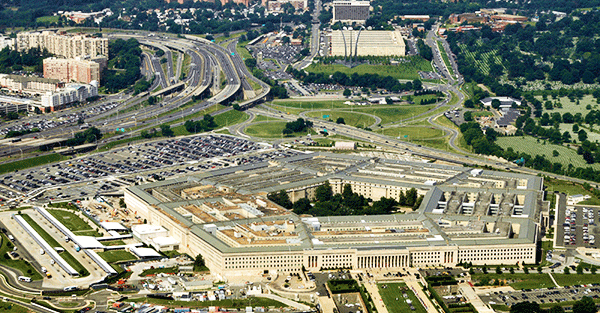
Vladimir Putin’s America-Friendly Propaganda About Fighting Terror Just Suffered A Big Blow Putin tries to present himself as the best bet against ISIS. In reality, he’s helped it thrive. – Huffington Post
The Pentagon is combating reports that the US military-industrial complex, specifically the Pentagon and CIA in concert with allies like Saudi Arabia, created and promoted ISIS.
When Russia began to bomb ISIS last year, it announced that the Pentagon’s considerable bombing campaign had done little to uproot ISIS.
In fact, one Russian general speculated that under cover of bombing ISIS, the Pentagon was actually bombing Syrian infrastructure to make it more difficult for Assad to successfully defend against ISIS.
The Russian bombing was the beginning of the end for ISIS in Syria. Fighters abandoned positions and had to flee outside of Syria.
Fighting continues. But the reality of the Russian attacks made it difficult for the Pentagon to answer charges that it hadn’t been serious about its ballyhooed bombing of ISIS.
And this also had a chilling effect on US media reports regarding anti-ISIS actions.
Not being able to adequately answer Russian charges, US media simply kept quiet on the subject.
But through RT, Russia has a significant voice on the ‘Net and the charges of Russia’s military received wide distribution despite US media dampening.
Now it seems, the Pentagon is ready to strike back in this ongoing “blame game.”
More from the HuffPo article (co-authored with the Berggruen Institute):
… Putin’s message resonates in an America that believes most of the chaos in the Middle East is a result of U.S. actions. His view is especially popular among Americans skeptical of the elites who shape U.S. foreign policy.
… Presumptive GOP nominee Donald Trump and Sen. Bernie Sanders (I-Vt.), the anti-establishment stars of 2016, have both bashed U.S. policies for enabling the rise of the self-styled Islamic State.
Trump has directly accused President Barack Obama and former Secretary of State Clinton of “creating ISIS,” implying the group grew from Obama’s policy of supporting nationalist Syrian rebels opposed to dictator Bashar Assad.
But by focusing on only those reasons for ISIS’s success, critics of American foreign policy are adopting the same view they ascribe to Clinton and other interventionists: that the U.S. is responsible for everything.
What is remarkable about the above excerpts is the bluntness with which the article presents the anti-Pentagon argument.
One can assume that those composing the article believe they have no choice. If they do not report honestly on a situation that has already been embedded in the public consciousness, they risk a loss of credibility when they offer the article’s thesis.
The thesis actually comes to us via Reuters, which performed the investigative “leg work.”
From Reuters:
Russian authorities had reason to deny [radicals] travel documents and prevent them from leaving the country. But according to relatives and local officials, in each case the authorities made their passage possible.
We learn from the HuffPo article (drawing on Reuters’ reporting) that Putin “adopted [the above] policy in the run-up to the 2014 Winter Olympics in Sochi because of its fear that radical Islamists would target the marquee event.”
The upshot is that, “Thousands of terrorists of Russian origin are now thought to be operating in Syria.”
The article then goes on to rehash the war itself and how Russia portrays Syria’s President Assad as an executive doing his best to administer Syria in the face of brutal attacks.
HuffPo has a different view of course, explaining that the conflict is the product of “millions of Syrians’ frustration with violent authoritarian rule.”
Ironically, the article goes into detail describing the moves Assad has made to reduce tensions between Syria and ISIS. These include avoiding attacks on ISIS controlled territory and release of ISIS prisoners. Supposedly, Assad has even purchased oil from ISIS.
These moves however are portrayed in the HuffPo article as cynical ones.
The article concludes by attacking Trump:
So next time an orange man with odd hair tells Americans that Obama is helping ISIS and Russia is the key to defeating it, perhaps they’ll be just a little more wary.
We would take issue with this conclusion. Americans generally are weary the serial wars generated by the military-industrial complex and those behind it.
Meanwhile, it is probably the first time in decades that a political figure as important as Trump has directly accused the US military establishment undermining American interests abroad.
This article in HuffPo is not at all convincing. The idea that, having read it, people will look less favorably on Donald Trump or begin to doubt his accusation regarding the Pentagon is not very credible.
In fact, it is harder and harder to generate the justifications for war in an environment where previous justifications have been comprehensively debunked.
Conclusion: It is possible that the Pentagon and its intelligence agency allies will come up with new reasons to expand the war in the Middle East. But it is just as likely these will be no more valid than previous ones. In this new and increasingly transparent era, they may well be rejected by a more informed public. That’s progress.
